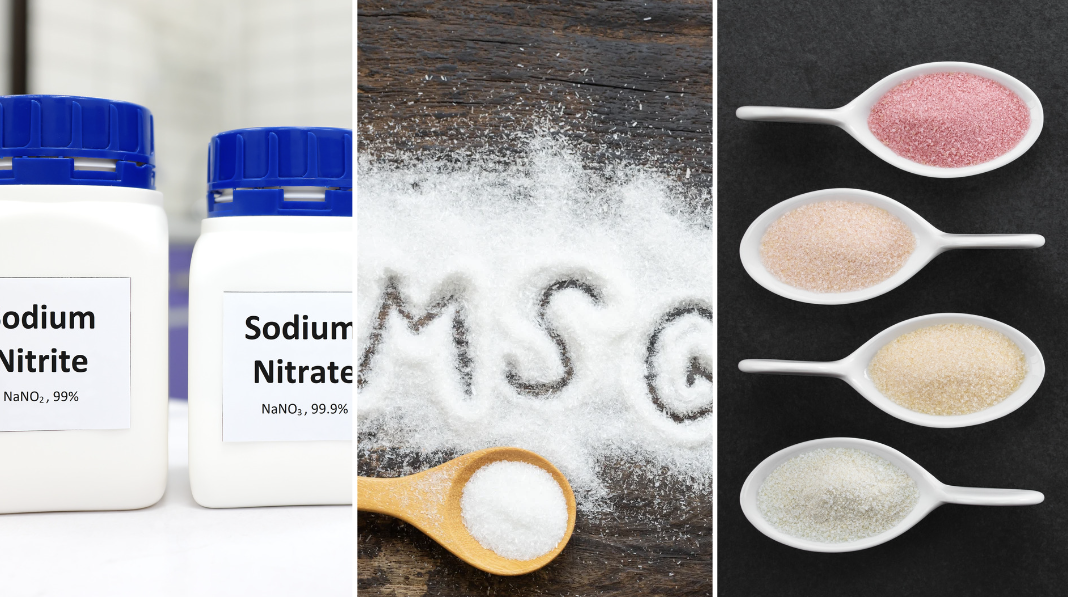Migraines are more than just a severe headache. They often tend to be made up of several symptoms including:
- pain or throbbing of the head, forehead, neck or stomach
- visual aura
- dizziness
- nausea or vomiting
- sensitivity to smell, sound, or light
- sensitivity to touch or weight of clothing or blankets
- tingling or numbness of hands, feet, or face (sometimes only on one side of the body)
Symptoms may not be the same from episode to episode and the length of an episode can vary from several hours to several days. There are a wide variety of triggers however food and food-based ingredients tend to be a big culprit. Below are four different categories of migraine triggers that may have to do with what you are eating or drinking. We'll discuss each of the categories below, at the end of the article we'll share a strategy for monitoring
Food Triggers
One potential trigger for migraines can be a sensitivity to or inability to properly process certain foods. These often include fermented or aged foods including:
- alcohol
- cheeses
- chocolate
- citrus
- shellfish
- caffeine
- MSG
- “natural flavorings”
- or preservatives such as nitrates, nitrites, and sulfites
About Tyramines
Another potential trigger for migraines can be tyramine, a trace element from the amino acid tyrosine. It functions as a catecholamine releasing agent (the catecholamines are neurotransmitters in the brain, norepinephrine, epinephrine, and dopamine). Foods that are high in tyramines include:
- bananas
- avocados
- beer
- cabbage
- sour cream
- yogurt
- most cheeses
- soy products – soy sauce, soy bean paste, tofu, or natto
- sauerkraut
- pineapples
- eggplants
- figs
- red plums
- raspberries
- peanuts
- brazil nuts
- coconuts
- yeast
- cacti
- processed meats (lunchmeat, sausages, canned fish, etc).
Reduce Refined Sugars
Sugar can be highly inflammatory; consuming high levels of sugar and simple, or highly refined, carbohydrates can negatively impact blood sugar levels. When this happens the body releases insulin which in turn causes a drop in blood sugar. This cycle, sometimes referred to as a blood sugar roller coaster, can be a potential link to headaches or migraines. Learning to understand where sugar hides in the diet can be key to managing your blood sugar levels and possibly have a positive impact on your migraines.
Healthy Hydration
For many migraine sufferers dehydration can be a trigger. Making sure that you are getting proper hydration is an important part of migraine health. To figure out how much hydration you need calculate body weight. Divide that in half for the number of ounces needed to be properly hydrated. Divide that number by 8 to get the number of cups of fluid.
Take that number, divide it by four and then set a “hydration alarm” approximately every two hours. When the alarm goes off set your liquid in front of you with the goal to drink it before the alarm goes off again. Remember that this does not mean plain water. Too much water is not healthy either. Hydrating foods such as soups, herbal teas, and food with lots of liquid (like watermelon) all count towards a daily hydration goal.
Be Mindful of Micronutrient Status
Nutrient deficiencies are a possible trigger for headaches which may or may not include migraines. And in addition to eating a highly processed diet, or a diet that is low in nutrient density, taking certain medications can deplete nutrients, potentially adding to the issue. Working with a medical or nutrition professional who can order appropriate testing to check your micronutrient status would be helpful.
Food Changes
Because there are so many different foods that are highly linked to migraines, one way to possibly support reducing migraines is to remove them. But while removing whole foods can be helpful, it's important to know that some processed foods can contain hidden ingredients that can be migraine triggers . And because many of these ingredients are used in a wide variety of items, this makes reading the labels, understanding these ingredients, and avoiding them an important part of your migraine wellness plan.
Monitoring your headache/migraine activity while avoiding triggering food groups can help you more clearly identify which ones may causing your issues.
Using a food journal can be a good way to do this. As you build a complete picture of your food-based migraine triggers and change your diet this should help to reduce your episodes. It's important that if you are working with a doctor and/or nutrition professional to help you resolve your migraine issues you let them know about these changes.
Learn More: Join the Migraine Management Masterclass
Join and unlock exclusive access to the Migraine Masterclass as part of your subscription to the The Kitchen Table community! Whether you're personally dealing with migraines or supporting someone who is, this masterclass offers invaluable insights and practical strategies to alleviate chronic headaches. Don't miss out on this opportunity to gain expert guidance and take control of your migraine health!
[expand title="Sources"]
Keith Rowe. “Meds That Can Deplete Nutrients: Do You Take Any of These 8 Meds?” BrainMD Blog, 21 Nov. 2022, brainmd.com/blog/medications-that-can-deplete-nutrients/.
NutritionReview.org. “A Practical Guide to Avoiding Drug-Induced Nutrient Depletion.” Nutrition Review, 22 May 2019, nutritionreview.org/2016/12/practical-guide-avoiding-drug-induced-nutrient-depletion/.
[/expand]



I used to have loads of migraines and never knew that these foods could be a trigger. Thank you so much for raising this awareness!